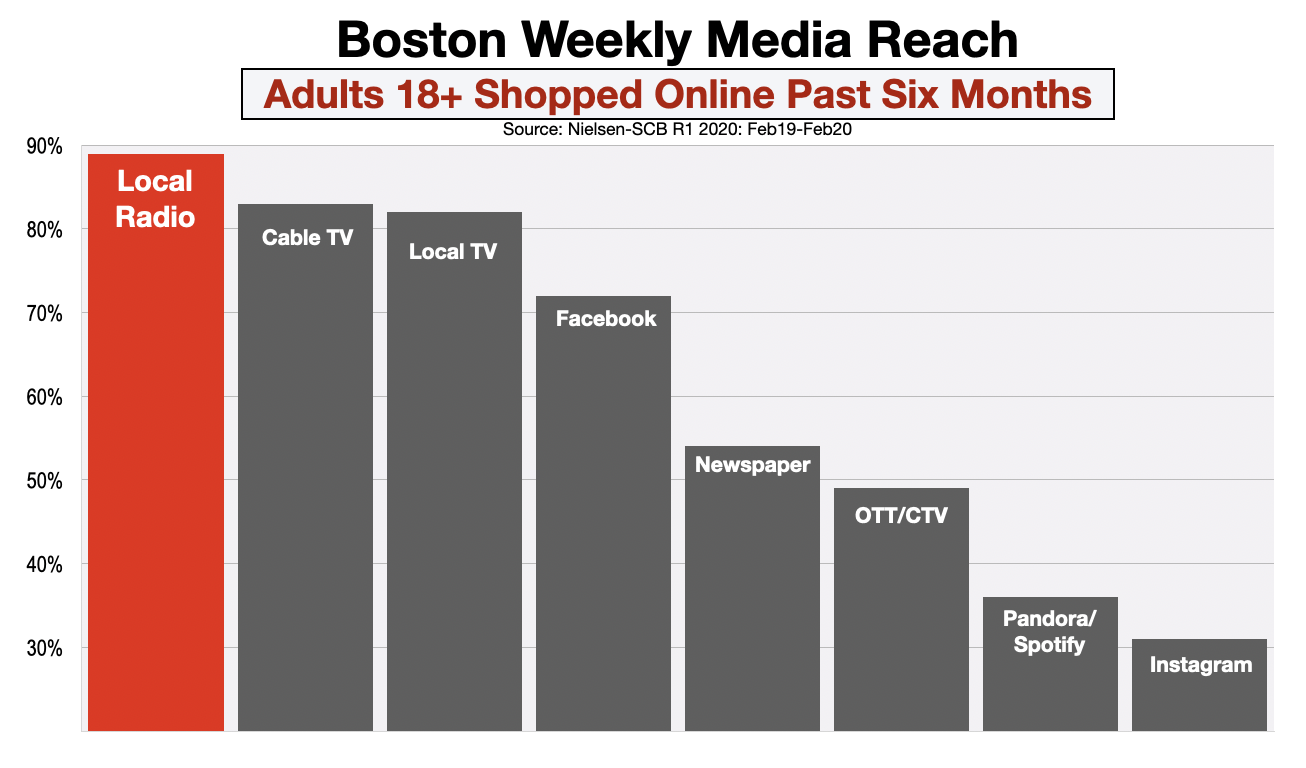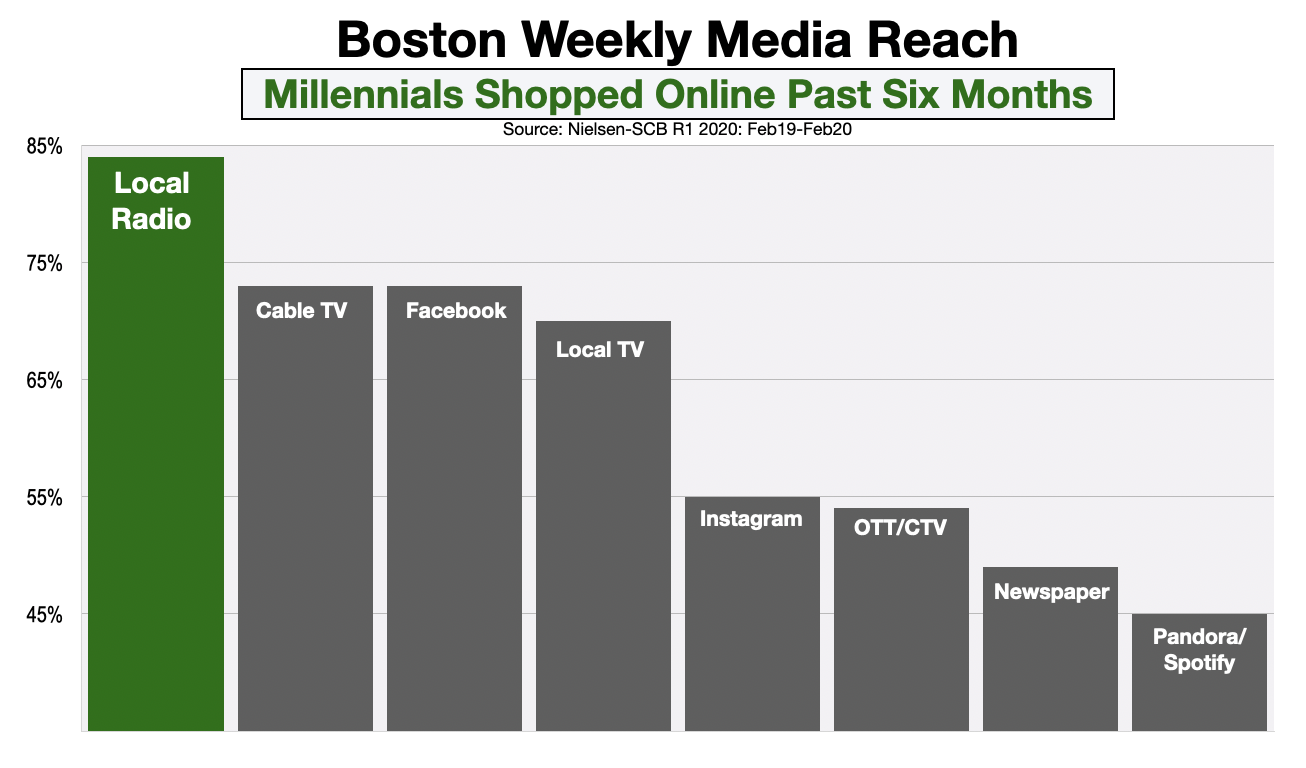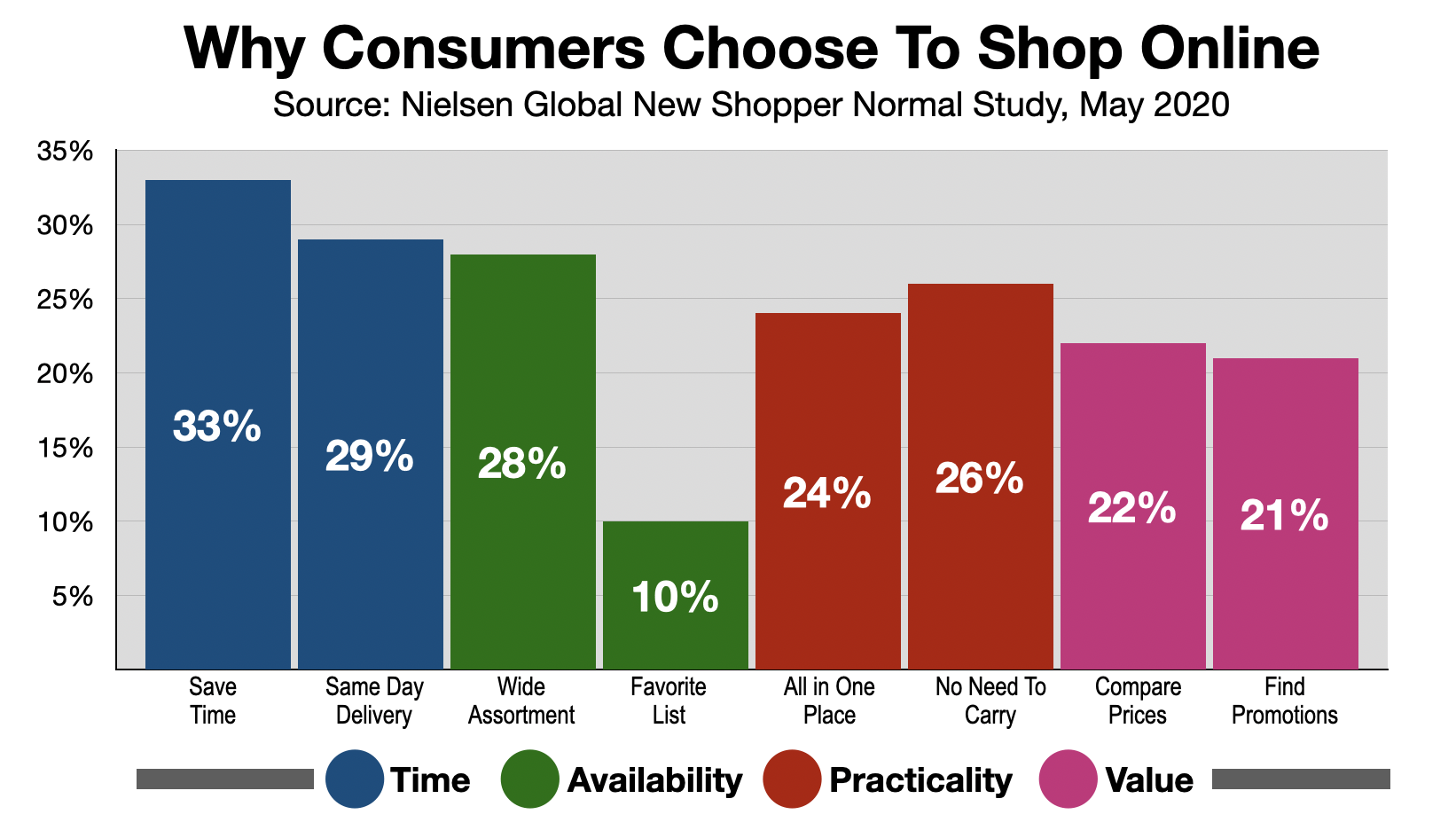Over 95% of Boston adults have access to the internet, according to Nielsen. Almost 70% of these consumers spend more than five hours a week connected.
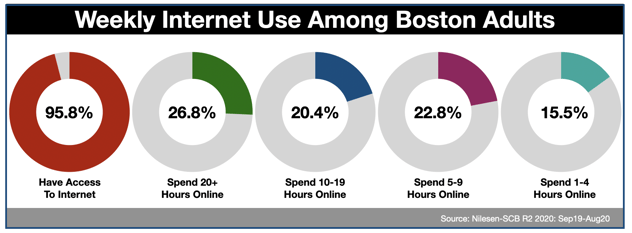
Nielsen reports that Boston consumers go online to stay connected to friends and family; research products and services; learn the latest news, and obtain directions to where they are going and know what the weather will be when they get there.
Here are some of the many reasons why Boston internet users go online each month
- Social Media: 77%
- Weather: 60%
- Online Banking: 59%
- Maps/Directions: 50%
- Product Reviews: 48%
- Sports Scores/News: 43%
- Current Events: 42%
- Restaurant Reviews: 37%
- Real Estate: 19%
- Job Search: 17%
And, of course, there is shopping. Over the past three months, according to Nielsen, 77.5% of Boston consumers shopped online for every imaginable product and service including, cars, golf clubs, office supplies, wedding rings, mattresses, tires, medicine, shoes, socks, and eyeglasses.
To reach local consumers while they are online, Boston businesses will spend $1.7 billion for digital advertising in 2020, according to Borrell Associates. Here is how the money is being spent:
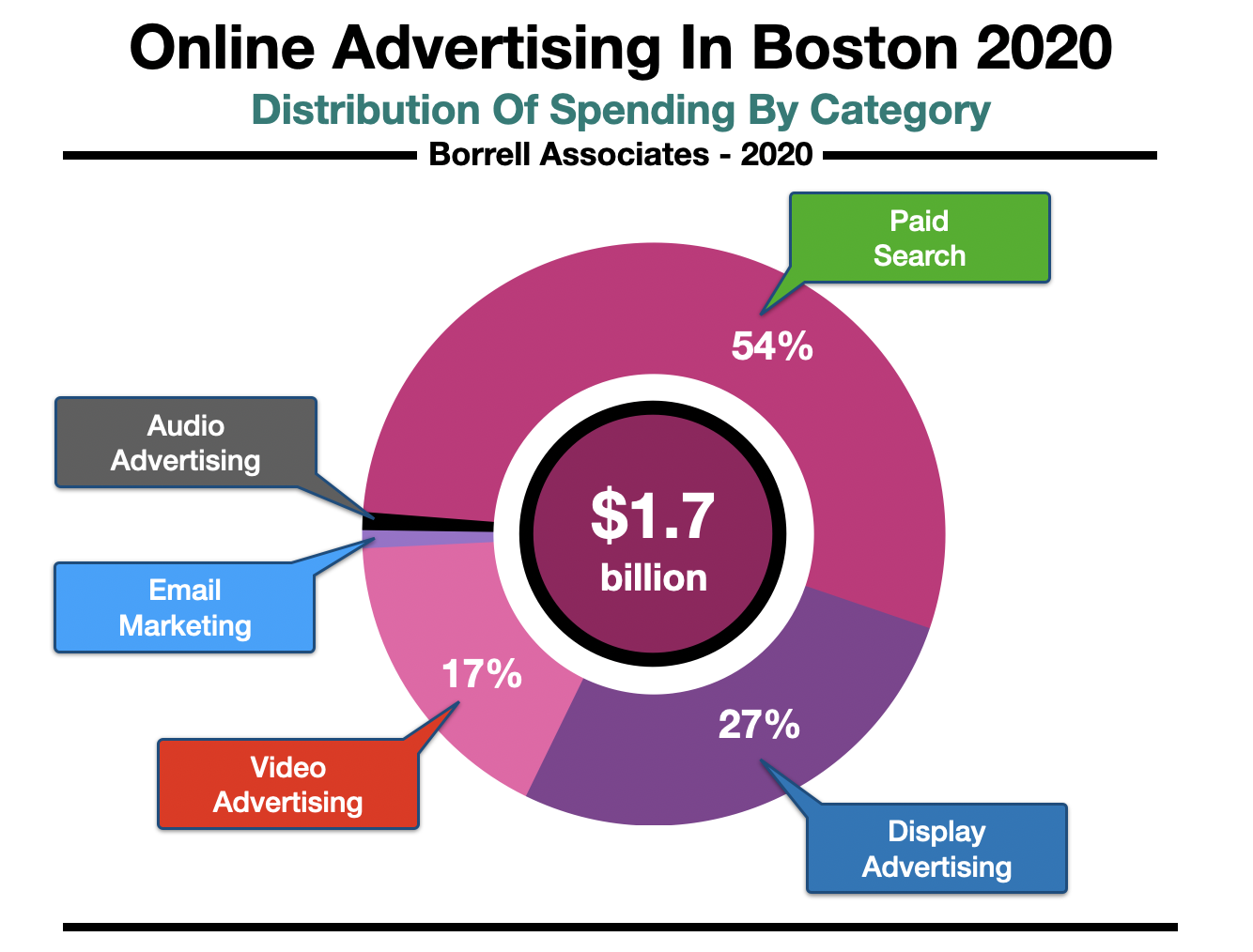
When local businesses advertise online, a primary objective is to promote e-commerce. Based on recent projections from eMarketer, Boston shoppers are expected to spend a record $12.5 billion online in 2020.
During the same period, according to eMarketer, receipts at brick-and-mortar stores have contracted by 3.2%. Overall, excluding gas and auto sales, e-commerce will account for 20.6% of all retail sales this year.
The Coronavirus pandemic is credited with this seismic shift in shopping behavior as consumers continue to avoid stores and opt for online shopping.
“We’ve seen e-commerce accelerate in ways that didn’t seem possible last spring, given the extent of the economic crisis,” said Andrew Lipsman, eMarketer principal analyst at Insider Intelligence. “While much of the shift has been led by essential categories like grocery, there has been surprising strength in discretionary categories like consumer electronics and home furnishings that benefited from pandemic-driven lifestyle needs.”
Even before the onset of the pandemic, 82.1% of Boston consumers had bought goods online over the prior six months, according to Nielsen research. Purchases included clothing, health & beauty products, travel reservations, books, furniture, and groceries.
In addition to online advertising, many local business owners depend on other forms of marketing to reach online shoppers.
By any measure, the best way to expand the success of an online marketing campaign is with Boston radio.
Last week, for instance, local radio reached significantly more online shoppers than all other local media including, Boston TV, cable, newspaper, or social media.
Local radio's ability to reach online shoppers extends to millennials. This generation now accounts for over 30% of all retail sales in the Boston area.
On average, advertising on Boston radio creates an eight percent lift in website traffic for local businesses, according to Analytic Owl, an advertising attribution company. More than 81% of this increased traffic comes from new visitors.
When advertising on Boston radio to reach online shoppers, it is essential that the commercials address the reasons why consumers choose to buy from websites versus local stores. These motivations fall into four categories, according to Nielsen: time, availability, practicality, and value.
Ecommerce was certainly not born out of the pandemic," says Nielsen, "but the pandemic has elevated consumer adoption and reliance in ways that would have otherwise taken years. Consequently, brands and retailers now need to innovate to meet elevated expectations."



